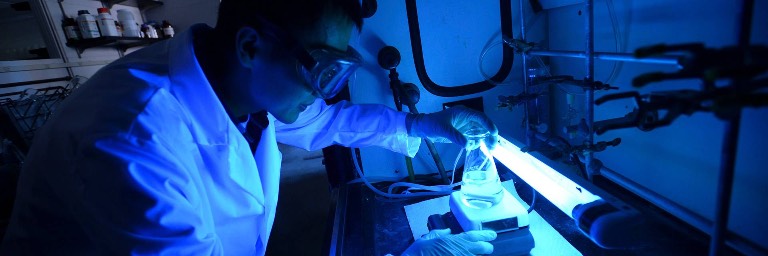Combined Chemical Engineering Degree
Chemical engineers are in high demand, and opportunities in industry or government are growing.
If you’re looking for the fastest route to a graduate degree and a rewarding career, a combined bachelor's and master's degree in Chemical Engineering will get you there.
- Program type:
- Accelerated (Bachelor’s and Master’s)
- Format:
- On Campus or Online
- Est. time to complete:
- 5-6 years
- Credit hours:
- 148-156
Why earn a combined chemical engineering degree?
Combined Degree in Chemical Engineering
-
Take advantage of an opportunity to extend your studies to include a graduate degree and advanced research.
-
Further your knowledge with key areas: energy technologies, fuels, sustainability, material reactions and other related areas.
-
Participate in projects conducted through our interdisciplinary research programs, or in collaboration with the Energy & Environmental Research Center (EERC).
-
Structure your graduate program with innovative research and both traditional and alternative course study (independent study or distance coursework) so you can achieve your goals.
-
Enhance your professional skills at 60+ free workshops offered through the UND School of Graduate Studies. Our goal is to provide you with the workforce skills and job search strategies to succeed.
-
Raise your grades by getting free academic support at UND. We offer individual tutoring sessions, along with specialized writing and math support programs.
Is a master's in chemical engineering worth it?
Combined Chemical Engineering Degree Courses
Online Combined Chemical Engineering Degree
Leaders in Engineering
Helping you fulfill your aspirations is our highest priority. We'll work with you to design a custom educational plan that meets your goals.
